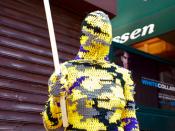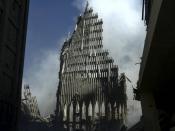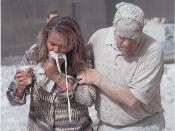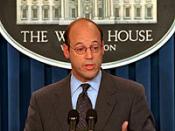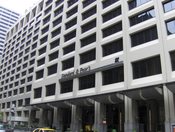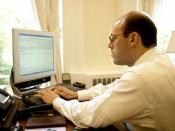It has been said that as New York City goes, so goes the country.
I spent some time in New York after September 11th. The city's business community had at least temporarily shifted its focus from profit-making to recovering from the terrorist attacks. Not surprisingly, people were not spending much money.
Last week, the Bush administration finally uttered the dreaded word -- recession -- conceding that an economic downturn is inevitable.
"The president is very concerned about the effects of the economy in New York, but not only in New York, throughout the country," White House spokesmanAri Fleischer told reporters.
Economists coast to coast chimed in with a chorus of "little or no recovery for the rest of this year." Traditionally, in this country, analysts say recessions last 11 to 14 months.
This leaves the near future of the U.S. economy largely in the hands of consumers, who for their part, are too shell-shocked to rise to the occasion just yet -- online or off.
Standard & Poor's says Tuesday's terrorist attacks will not have a long lasting effect on the U.S. economy, though it does believe a short and moderate recession now appears likely.
The New York-based rating agency said the initial response in financial markets is likely to be a "flight to safety," and a subsequent sharp fall in prices in a wide range of securities and commodities. But, it points out, European and Asian markets have already rebounded from the worst levels seen immediately after the attacks.
"While some pause in consumer spending and business investment is likely, the efforts of all levels of governments to return to normality and response of people and officials in New York and Washington strongly suggest that economic effects will be limited in duration and scope," said David Blitzer, managing director and chief investment strategist for S&P.
